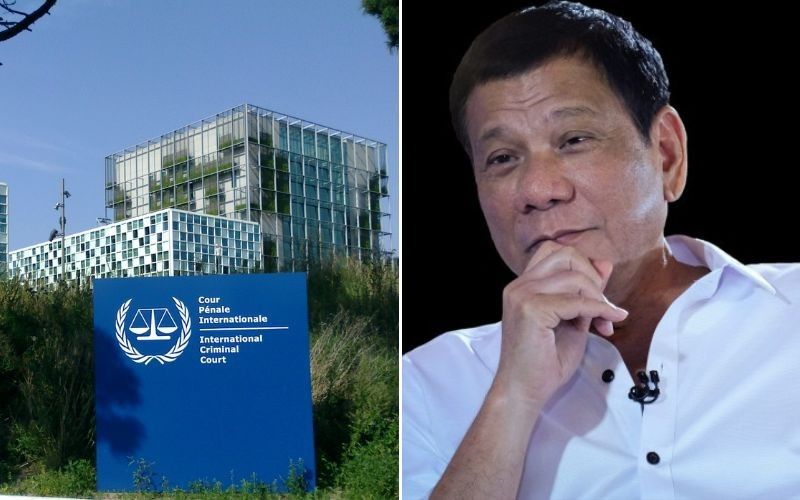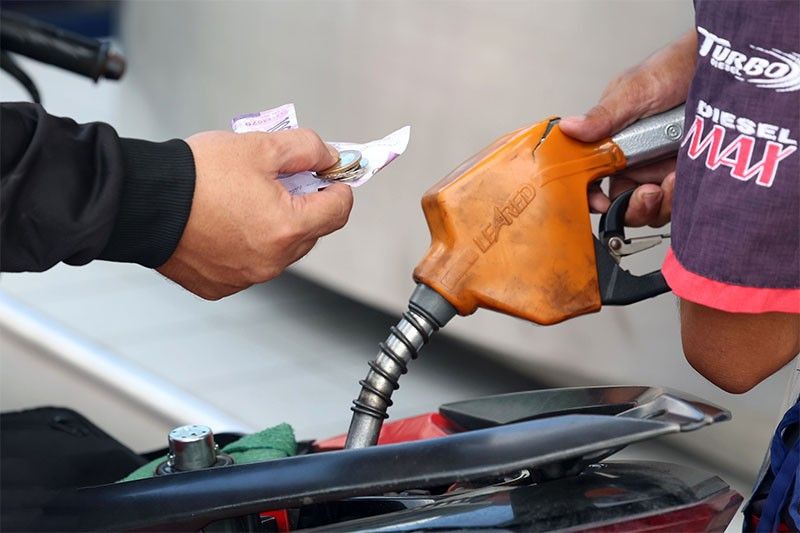
Upgrade to High-Speed Internet for only ₱1499/month!
Enjoy up to 100 Mbps fiber broadband, perfect for browsing, streaming, and gaming.
Visit Suniway.ph to learn
Pia Lee-Brago - The Philippine Star
February 25, 2025 | 12:00am
Visit of Japan defense chief to boost security cooperation
MANILA, Philippines — The United States has exempted a “portion” of its military assistance to the Philippines from its foreign aid freeze, the Department of Foreign Affairs confirmed yesterday. The DFA did not disclose the exact amount the US exempted.
“Both countries are committed to the treaty alliance and to efforts to further strengthen our defense cooperation and interoperability,” DFA spokesperson Ma. Teresita Daza said in a statement.
“We will continue to engage the US government on the importance of our bilateral work in supporting our shared goals and priorities,” she added.
A Reuters report cited a list of exemptions it reviewed and the $5.3 billion in previously frozen foreign aid, mostly for security and counter-narcotics programs exempted from US President Donald Trump’s order for a 90-day pause on foreign aid.
Security exemptions included $870 million for programs in Taiwan, $336 million for modernizing Philippine security forces and more than $21.5 million for body armor and armored vehicles for Ukraine’s national police and border guards.
Defense Secretary Gilbert Teodoro Jr. expressed optimism that the defense agreements between the Philippines and the US would not change even as the US State Department ordered an immediate stop to almost all US foreign assistance pending a review.
US Defense Secretary Pete Hegseth said the US remains focused on maintaining a strategic advantage over China and on keeping the world free, after speaking to leaders of the Philippines, Australia, Japan and South Korea.
He said the focus is also on the Indo-Pacific region, citing phone calls and meetings he had with leaders of the four countries.
Hegseth reaffirmed Washington’s “ironclad” commitment to a mutual defense treaty with the Philippines during a call with Teodoro on Feb. 5.
The defense chiefs held an introductory call to discuss defense cooperation between the US and the Philippines.
They discussed the importance of reestablishing deterrence in the South China Sea, including by working with allies and partners and enhancing the capability and capacity of the Armed Forces of the Philippines.
The US security commitment to the Philippines was reaffirmed by Indo-Pacific Command chief Admiral Samuel Paparo in his speech at the commemoration of the 80th anniversary of the Battle for Manila at the Manila American Cemetery last Saturday.
“Our nations have stood together for decades, confronting common challenges and advancing shared interests in the Indo-Pacific region,” Paparo said.
“The liberation of Manila was a triumph for universal values of human dignity, self-determination, and the human spirit. As we honor the memory of those who gave their lives, let us rededicate ourselves to the cause of freedom and our enduring partnership,” he said. “May the sacrifices of our forebears inspire us to stand firm in the face of challenges, and may our bonds of friendship and cooperation grow stronger in the years to come.”
During his Philippine visit from Feb. 20 to Feb. 22, Paparo met with President Marcos, Foreign Affairs Secretary Enrique Manalo, National Security Adviser Eduardo Año, Secretary Teodoro, Armed Forces of the Philippines (AFP) chief of staff Gen. Romeo Brawner Jr., Presidential Assistant for Maritime Concerns Andres Centino and US Ambassador MaryKay Carlson.
Japan defense chief in Manila
Underpinning rising security concerns, President Marcos received at Malacañang yesterday Japanese defense chief Gen Nakatani who is in Manila for a three-day visit. His itinerary included a meeting with Teodoro.
“I hope that with the many changes that are occurring in our region, that your visit will – we will be able to discuss some of those anticipated changes that we are looking at in view of strengthening our relations between Japan and the Philippines,” Marcos told the Japanese official during a courtesy call at Malacañang.
Nakatani, for his part, cited “great developments” in the areas of defense cooperation and security cooperation between the Philippines and Japan under the leadership of Marcos and Japanese Prime Minister Shigeru Ishiba.
The defense minister said he visited Basa Air Base in Floridablanca, Pampanga and Wallace Air Station in San Fernando, La Union.
“I was able to observe with my eyes the air surveillance radar system which was transferred by the Japanese government,” he said.
Later yesterday, Teodoro had a meeting in Makati with Nakatani where they discussed China’s unilateral effort to change the international order by intimidation and spreading of its false narrative.
“We look forward to the discussions this morning into even enhancing our partnerships with the shared values of a rules-based international order, a free and open Indo-Pacific, a resilient Japan and the Philippines against unilateral attempts by China and other countries to change the international order and the narrative,” Teodoro said in his opening remarks.
The Japanese defense chief said the regional and international security environment has become increasingly complexed and intensified, noting that “there is an increasing need for Japan and the Philippines to further enhance defense cooperation and collaboration in order to contribute to the peace and stability in the region and the international community.”
“Under such harsh security environment, I look forward to a deep strategic discussion with you secretary from the broader perspective, in order to raise the level of our defense cooperation and collaboration between Japan and the Philippines to an even higher level,” Nakatani said.
Teodoro said amid regional challenges, the Philippines and Japan have managed to sustain bilateral and multilateral security ties.
“The best proof that bilateral relations, to include defense and security relations between Japan and the Philippines are robust, enduring, and strong is that our multilateral arrangements likewise remain robust and strong,” Teodoro said.
During the meeting, both defense leaders reaffirmed their commitment to strengthening bilateral security and defense ties, including the future implementation of the Reciprocal Access Agreement once it enters into force, and the ongoing capacity-building programs and cooperation on regional security challenges.
The meeting also highlighted Japan’s continued support for the modernization of the AFP through its Official Security Assistance Program. — Helen Flores

 4 months ago
17
4 months ago
17



